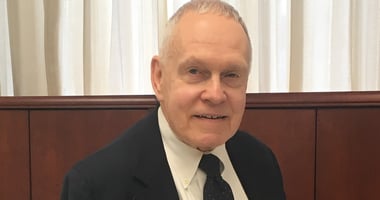Experts Consider Best Options for Treatment, Prevention of Opioid Abuse
 |
“Let me state clearly so as to leave no room for doubt,” said Rep. Tim Murphy (R-Pa., left), the chair of the U.S. House Energy and Commerce Subcommittee on Oversight and Investigations. “Our current strategies are failing, and I am not going to stop until we start moving in the direction of success defined not just as getting individuals off of street drugs and onto a government-approved opioid, but getting them to the point of drug-free living.”
The hearing included perspectives from leading experts in opioid addiction, who discussed the best options for treatment and prevention, including medication-assisted treatment and prescription drug–monitoring programs.
“I fully recognize the importance of medication-assisted treatment as a transition from street drugs and to prevent overdose from heroin,” Murphy remarked, “but relying on this as the one and only solution shouldn’t be the strategy.”
“Unlike many other disorders with high mortality rates, opioid use disorder is treatable, and a joint effort of health professionals, community advocates, and policymakers is urgently needed to reverse this tragic trend,” testified Adam Bisaga, M.D., a professor of psychiatry at Columbia University School of Medicine.
The scientific evidence base for medication-assisted treatment as part of an overall strategy to fight opioid addiction was highlighted by several members of the expert witness panel. "Opioid-addicted people need access to a broad range of treatments for opioid addiction,” said Laurence Westreich, M.D., president of the American Academy of Addiction Psychiatry. "This must include access to medication-assisted therapy and treatment for co-occurring psychiatric disorders.”
“We don’t have just an opioid misuse epidemic or an opioid overdose epidemic, we also have an opioid overprescribing epidemic,” explained Anna Lembke, M.D., an assistant professor of psychiatry and behavioral sciences at Stanford University Medical Center. “Contrary to what is commonly believed, doctors who treat addiction are not the source of the problem. The methadone that accounts for 40 percent of deaths by a single-drug opioid pain reliever is almost entirely in the form of pills prescribed for the treatment of pain, rather than coming from methadone maintenance clinics that treat individuals who are heroin dependent. Thus, it’s very important that we not only scrutinize physicians who prescribe opiates for the treatment of addiction, but also for those physicians who treat other common chronic illnesses such as pain.”
After the testimonies, Murphy told Psychiatric News that the hearing was an eye opener. “A lot of Americans who need treatment for opioid addiction are not getting the needed treatment. We need more providers to treat addiction and more regulation of the prescription practices that involve opiates," he said. "The subcommittee is definitely going to take the recommendations that were made today into consideration in hopes of bringing about change.”
To watch a recording of the hearing, click here. To read about more treatments for opioid addiction, see Psychiatric News articles "Psychiatrists Describe Trends in Medications to Treat Addiction" and "SAMHSA Releases Guidance for Initiating Medication Treatment for Opioid Overdose."
(Image: Vabren Watts/Psychiatric News)





